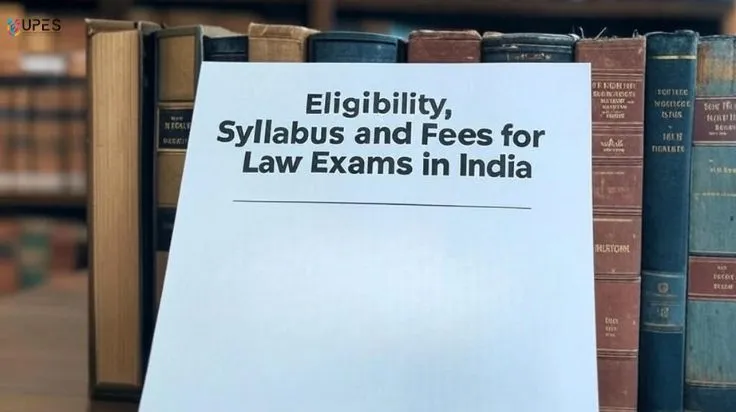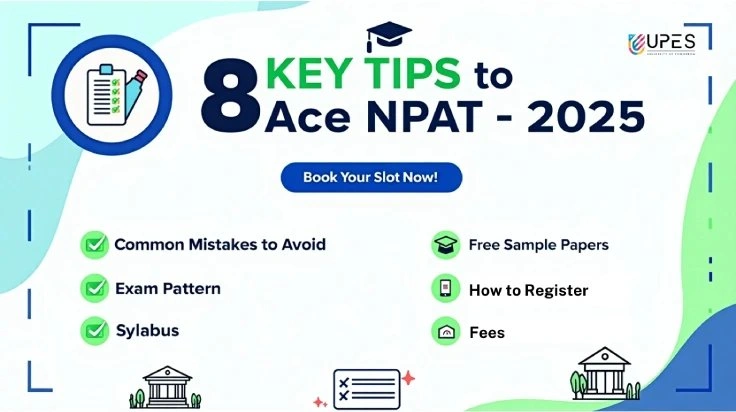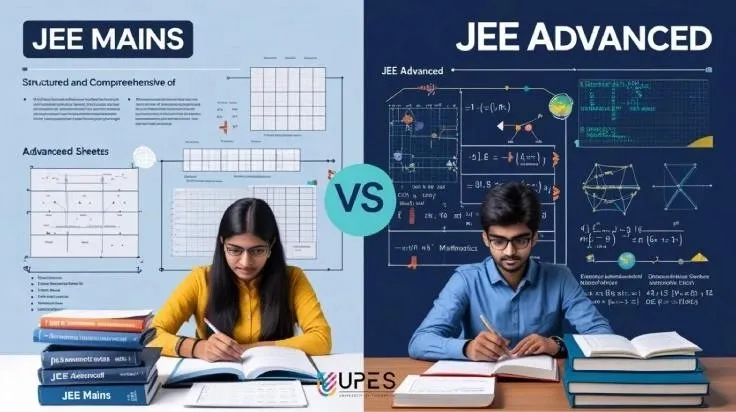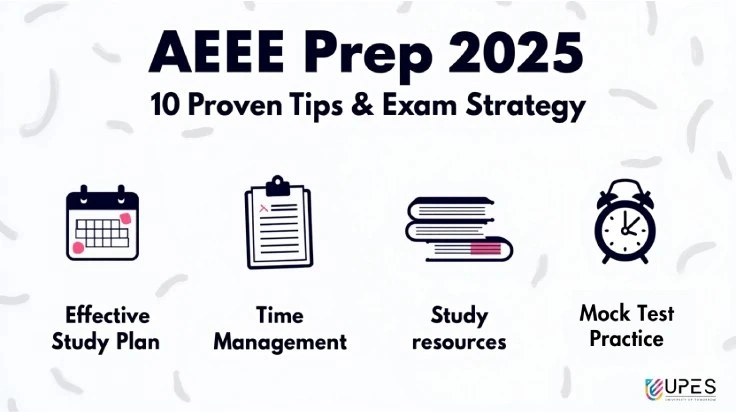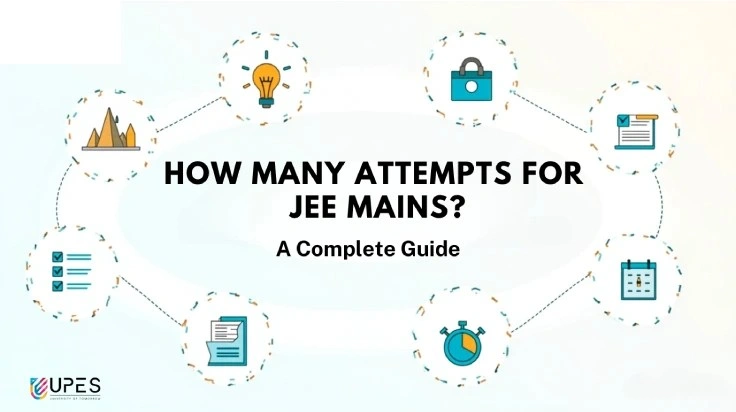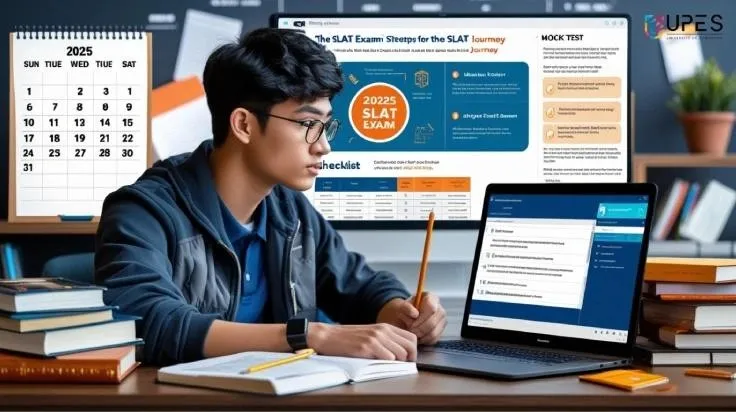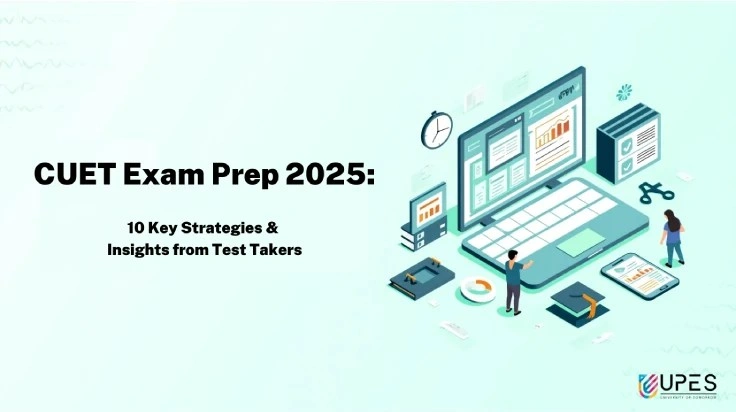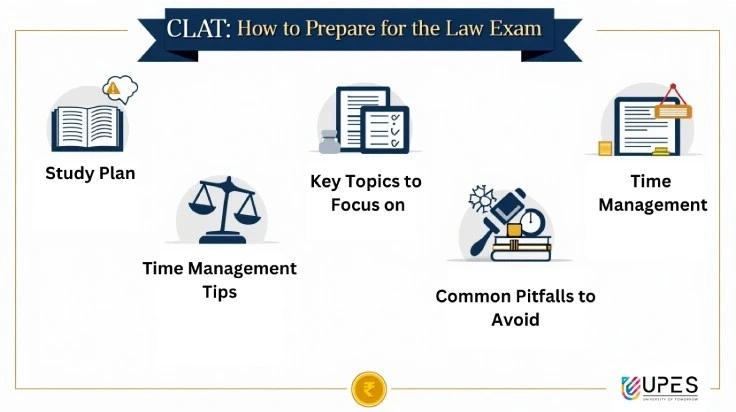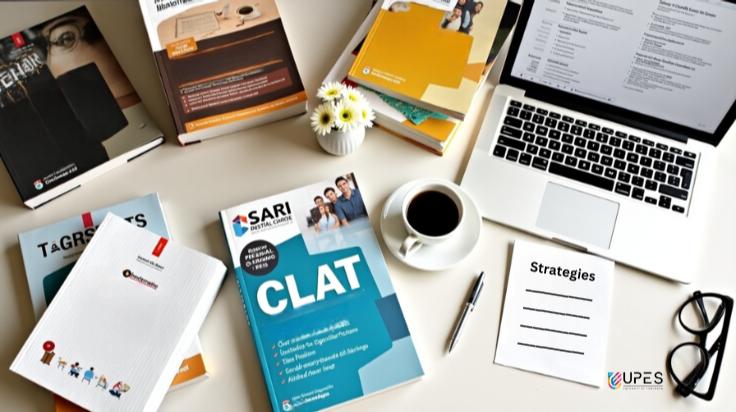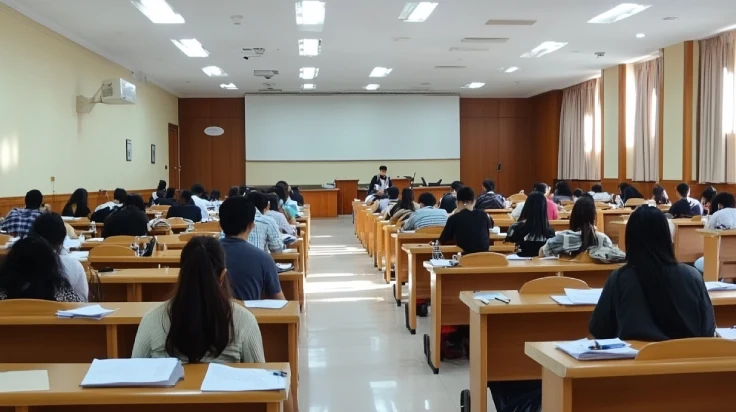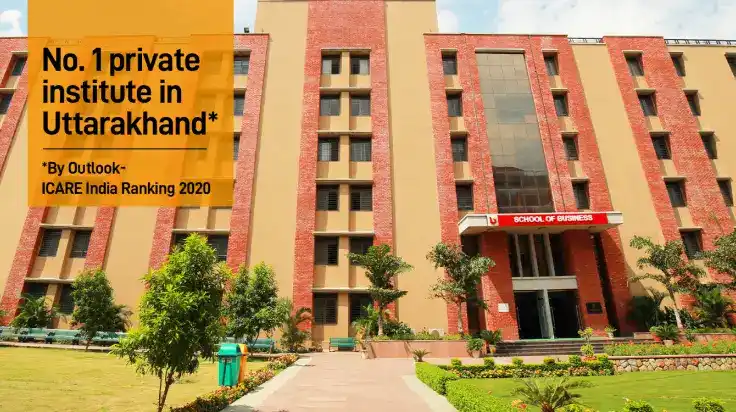How to Crack JEE Exam: Important Tips & Tricks You Should Know
- UPES Editorial Team
- Published 20/12/2024

Table of Contents:
Very soon we’ll have the JEE Exam knocking on our doors! Some will break those doors to enter colleges of their dreams while some will continue to stand still. With the right strategy, resources, and mindset, anyone can crack JEE Exam 2025, and that too in the first attempt!
In today’s fast-paced global world and competition, it would not be wrong to say having a good career ensures a good lifestyle and one needs to stay focussed and be far-eyed to achieve one’s dreams. And that’s why some start preparing for JEE even two-three years ahead the exam!
For one of the most challenging exams of the country and the world, we bring to you a blog to help you decide how to crack JEE Exam! In this blog, we’ll dive deep into tips and tricks that go beyond the usual “study hard” and “practice mock tests” advice, providing you with unique insights to enhance your preparation.
Joint Entrance Examination (IIT JEE)- Some Important Facts
Before we delve into the preparation strategy of JEE Exam- Mains and Advanced, let us bring you to some important information about JEE Exam you must know:
A national level engineering exam, IIT JEE is conducted by NTA.
JEE has two papers- JEE Mains and JEE Advanced. You just must qualify JEE Mains (entry-level exam) to be eligible for JEE Advanced. Your JEE Advanced score will determine the IIT, NIT, and other prestigious institutions you’ll get.
Jee Main Paper 1 is a three-hour online exam covering Physics, Chemistry, and Mathematics.
JEE Main Paper 1 has a total score of 300. There are a total of 75 questions, 25 from each subject. Out of these, 60 will be multiple-choice questions, and 15 will have a numerical response.
For MCQ questions, each correct answer will be given +4 marks, while each erroneous response will be given -1. There will be no deductions for unanswered questions.
In the case of non-MCQ questions, each correct answer will receive +4 marks. There is no negative marking for wrong or unattempted questions.
JEE Advanced is also conducted online, with 2 papers, each of 3 hours. The pattern is a mix of MCQs and Numerical value-based questions from Physics, Maths and Chemistry.
How to Crack JEE Exam in the First Attempt?
With only 2 attempts, you need to make every attempt count! Read more to acquaint yourself with some study tips and strategies:
1. Get Thorough with the JEE Exam Syllabus and Pattern:
Imagine sitting for an exam and not knowing what they will be asking or where the questions will come from! Like any wise person, get a hold of syllabus of JEE exam 2025. Go through the chapters, the topics of Physics, Chemistry and Maths as thoroughly as possible. Visit JEE Mains PYQs and JEE Advance PYQs to know the exam pattern, favourite IIT topics, number of questions, and more.
2. Choose the Right Resources:
There are umpteen number of books in the market. Not all books are worth studying from. NCERT Books are the best reference books to prepare for IIT JEE exam. Choosing the right study material is critical for cracking the JEE. However, many go beyond the NCERT books. Here are the top three recommended books for each subject:
Physics:
a. Concepts of Physics by H.C. Verma: A comprehensive book with clear explanations and practical problems.
b. Understanding Physics by D.C. Pandey (Arihant Series): Excellent for problem-solving and topic-wise practice.
c. Problems in General Physics by I.E. Irodov: Ideal for advanced problem-solving and conceptual clarity.
Chemistry:
a. Physical Chemistry by P. Bahadur: Best for numerical problems and solid concept building.
b. Organic Chemistry by Morrison and Boyd: In-depth coverage of organic reactions and mechanisms.
c. Concise Inorganic Chemistry by J.D. Lee: Essential for mastering inorganic chemistry concepts.
Maths:
a. Mathematics for JEE Advanced by R.D. Sharma: Comprehensive coverage of all topics.
b. IIT Mathematics by M.L. Khanna: Great for practicing high-level problems.
c. Problems in Calculus of One Variable by I.A. Maron: Ideal for mastering calculus.
3. Practice with Previous Paper and Mock Tests:
If you feel you can ace IIT-JEE Exams without taking mocks and practising from JEE PYQs, you could not be more wrong! Not only do mocks and PYQs familiarize you with exam pattern, recurring question types, but also help you build your speed and accuracy.
4. Reverse-Engineer Previous Year Questions
Instead of passively solving past papers, reverse-engineer them:
Identify the thought process behind each question.
Categorize questions by their source topics.
Understand patterns in concept frequency.
This approach helps you predict potential future trends.
5. Create a Study Plan and Stick to it
Remember, if you wake up everyday without a plan and go to sleep without completing the target, cracking IIT-JEE might become too soon a very far-fetched dream for you.
Instead of making a broad 6-month or 1-year plan, focus on detailed weekly and daily plans. Break down your syllabus into micro-topics and dedicate 2-3 hours daily to them. For example:
Instead of “finish Thermodynamics this week,” break it into “understand the first law on Monday, practice numericals on Tuesday.”
This approach keeps you motivated and reduces procrastination.
6. Divide your study time effectively:
70%: Core topics with high weightage (Mechanics, Algebra, Organic Chemistry).
20%: Medium-priority topics.
10%: Low-weightage topics you’re already comfortable with.
This ensures you’re optimizing your efforts for maximum score potential.
7. Revise Regularly
Doing the revision in a way you’ve doing all your life won’t help. More challenging exams demand better revision strategies. While revising, create a personal “JEE Dictionary” containing:
Key formulas and derivations.
Mnemonics for tricky concepts.
Shortcuts for repetitive calculations.
Common mistakes you’ve made in mock tests.
Reviewing this dictionary daily can keep essential information fresh in your memory. The JEE is as much a test of your mental strength as your academic prowess. Believe in your preparation and trust the process. Success in JEE isn’t just about cracking an exam; it’s about evolving into a more disciplined, focused, and resilient individual. Good luck!
How to Crack JEE in One Month? - Some Additional Tricks:
There is NO shortcut to success! If you listen to the videos of toppers and people who have cracked JEE exam, they’ll all tell you they had begun their preparation early and followed a clear routine for their preparation.
Here’s listed below some quick tips and tricks to help you ace the exam of your dreams:
a. Dedicate a Pomodoro cycle to each subject every day. For instance: Physics: 2 Pomodoros (90 minutes); Chemistry: 1 Pomodoro (45 minutes) and Math: 3 Pomodoros (135 minutes).
b. Leverage AI-driven platforms and apps like WolframAlpha, ChatGPT, and Photomath to understand difficult concepts, solve problems. But remember to use these tools as learning aids, not shortcuts.
c. Adopt a strategy of focused study sessions of 50 minutes followed by a 10-minute break.
d. Find a group of like-minded aspirants. Expose you to different problem-solving methods.
e. Take your mock tests seriously by simulating real exam conditions. Attempt an extra-long mock test session occasionally.
f. Listen to audiobooks or podcasts on conceptual topics. Flashcards for quick formula revisions.
These quick tips will help you tailor your preparation in the direction of success and fruition.
Important Points for Scoring Good Marks in JEE Main
Let us now move on to the section of what you can do to maximise your score. Here’s some top-notch skills to grab maximum marks:
General Strategy
- Focus on sections and topics where maximum marks can be scored.
- Identify and categorize questions into easy, moderate, and difficult; aim to solve the easy ones first.
- Maintain a calm mindset and avoid panicking.
Chemistry
- Prioritize Inorganic Chemistry topics like P-block, S-block, and Classification of Elements and Periodicity in Properties.
- Questions are mostly direct, and concept based.
- Focus on Chemical Bonding, Periodic Table, Redox Reactions, and Carbonyl Compounds.
Physics
- Prioritize Modern Physics (atomic and nuclear physics, relativity) which contributes to 10-15% of questions and can be solved using direct formulas.
- Focus heavily on Electricity and Magnetism (20-25% of the paper) and key concepts like:
- Gauss Law and its applications.
- Biot-Savart Law and Faraday’s Law.
- Right-hand rule and left-thumb rule for electric and magnetic fields.
- Prepare to eliminate incorrect options by understanding the direction of fields.
Mathematics
- Focus on Matrices and Determinants:
- Understand matrix types, properties, and methods to calculate rank using echelon form.
- Quadratic Equations:
- Use the formulas for sum and product of roots to simplify problem-solving.
- Prioritize these as scoring and less time-consuming topics.
How to Guess the Correct Answer in JEE Mains?
JEE has negative marking, but educated guessing can sometimes save the day. Here’s how to minimize risks:
- Eliminate extreme options in MCQs. For example, if the question asks for a range, discard the smallest and largest.
- Apply dimensional analysis in Physics to check unit consistency.
- Use logic to identify patterns in numerical sequences.
- Around 30-40 easy questions can fetch 110 marks, helping you qualify for JEE Advanced.
- Manage time effectively and attempt questions wisely to minimize negative marking.
Conclusion
Staying positive and giving your best might sound like world’s most boring advice but nothing else matters if these two are not practised. Stay calm, confident, and trust your preparation as you approach the final day. JEE Exam is tough but is conquerable. Remember, when there is a will, there is a way.
UPES Editorial Team
Written by the UPES Editorial Team
UPES Admission Enquiry
Subscribe to UPES Blogs
Join our community for exclusive stories, insights, and updates
By clicking the "Subscribe" button, I agree and accept the privacy policy of UPES.









